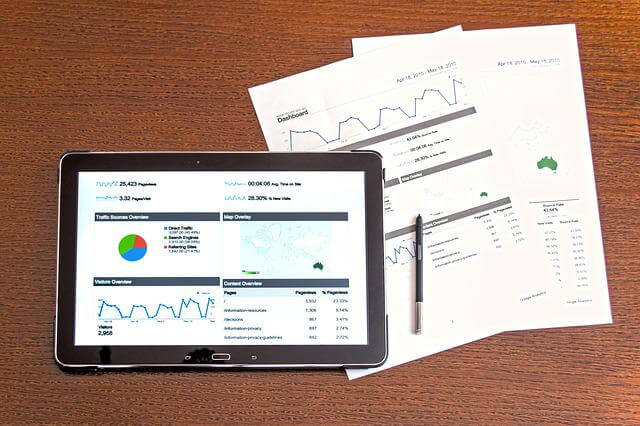In a technology-driven world, data you can gather from potential users and customers is invaluable in making decisions for your start-up business. Data analytics can help you determine important factors like the type of product or service to offer, the best methods for distribution, or how to communicate well with your customers. Thoughtful use of data is among the surest predictors of start-up success. Here are some ways data analytics helps foster your business goals.
What Is Data Analytics?
Image via Pixabay by Pexels
Consumers create data trails everywhere they go on the internet. They shop online, read articles, watch videos, and share on social media. Data analytics tools take all this raw data and help integrate the information into company objectives and goals. Data analytics is a broad term that can cover metrics like manufacturing runtime in a factory or common customer food orders. The results can give a start-up business or management team a clearer picture of its potential clients and customers based on past and future behavior.
Types of Data Analysis
According to business analyst Pushpraj Kumar, there are four significant types of data analysis:
- Descriptive analytics help you understand the past.
- Diagnostic analytics answer why.
- Predictive analytics help reveal future possibilities.
- Prescriptive analytics help define future actions.
Hiring data analysts with experience with all types of analytics is the best way to harness the power of raw data.
Using Data Analytics in Decision Making
Start-up companies face a lot of unknowns. They need to determine if their product or service is viable in the marketplace. They need to know who might best benefit from the product or service and how it might be used. Data analytics shows the most useful, beneficial, and popular aspects of products, and companies can tailor their future development to those answers. An app developer, for example, may discover through a beta test that only a small number of users accessed a particular feature. The company may decide to eliminate it and refocus the app on the most-used feature.
Start-ups can have a lot of development happening at once to see what is going to work. Data helps determine how to reduce or expand the company’s workforce in order to work on projects with the most earning potential.
Using Data Analytics in Customer Relations
Modern consumers are becoming privacy-aware. They expect a certain amount of data gathering, but, according to Lisa Lee at Salesforce, there is an ethical line to walk as you collect information. “The sweet spot,” Lee says, “lies in being thoughtful about what data is truly necessary to provide an excellent experience, collecting less sensitive data and personally identifiable data, and relying more on first-party data.” You can think of it as respecting the customer’s boundaries while using specific and useful data to make recommendations, market relevant products to them, or cater their user experience according to their habits.
Setting appropriate boundaries and goals for data analytics in your start-up company is one of the best tools for future success. As your company hires the right kind of data analytics professionals, creates a clear picture of the type of data to gather, and makes thoughtful decisions from the results, you can have high hopes that your start-up will have staying power in the market.

Hey, this is Johny Sehgal. I am the owner and caretaker at Finance Jungle. I completed my education in BSC and now heading towards the digital marketing industry. I usually have interests in reading, playing games and watching movies. I also love to write content based on quality information. The main motive of mine is to provide the top and best quality information to my readers. Finance Jungle is the blog for the same.












